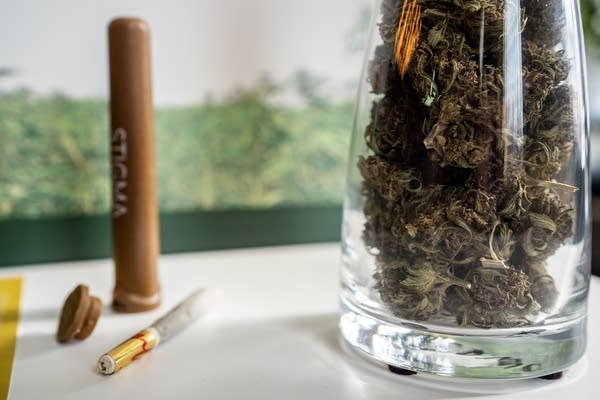Hemp farmers, retailers pounce on market for CBD products

A jar of hemp sits nexts to a 1-gram "pre roll" inside of Stigma Hemp in Minneapolis on Thursday. Stigma sells a variety of CBD products and is the first store of its kind in Minneapolis.
Evan Frost | MPR News
Go Deeper.
Create an account or log in to save stories.
Like this?
Thanks for liking this story! We have added it to a list of your favorite stories.


